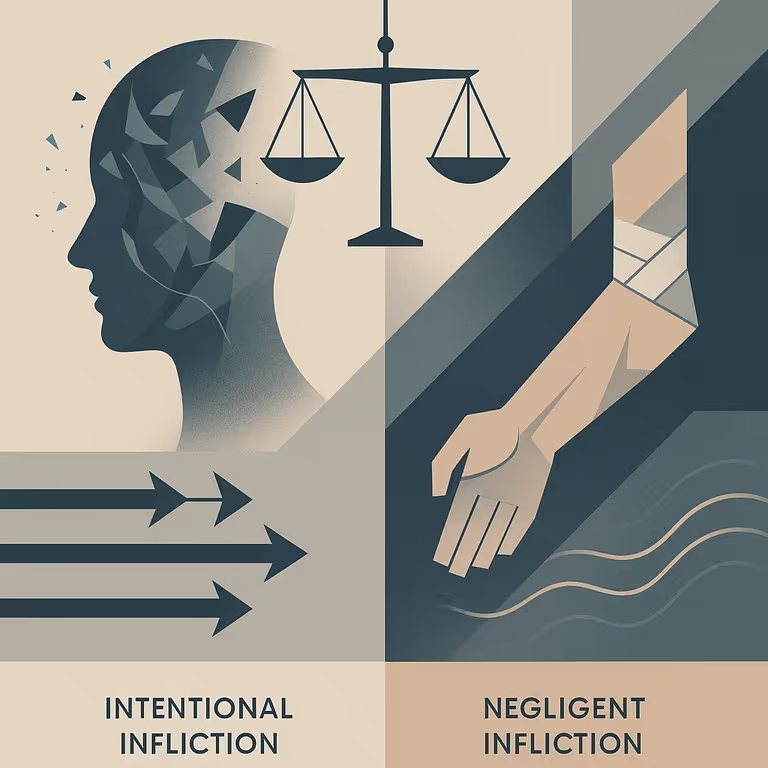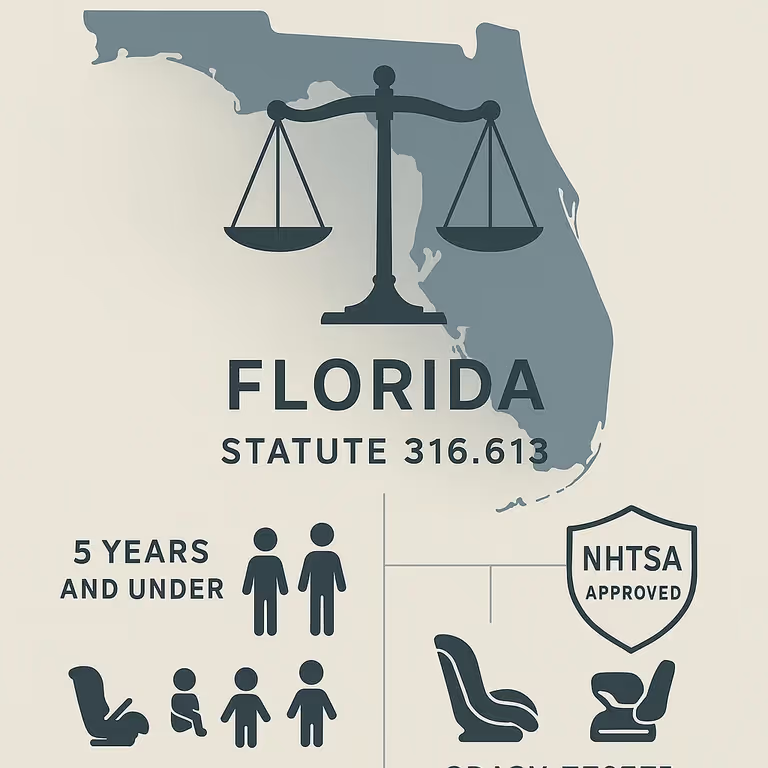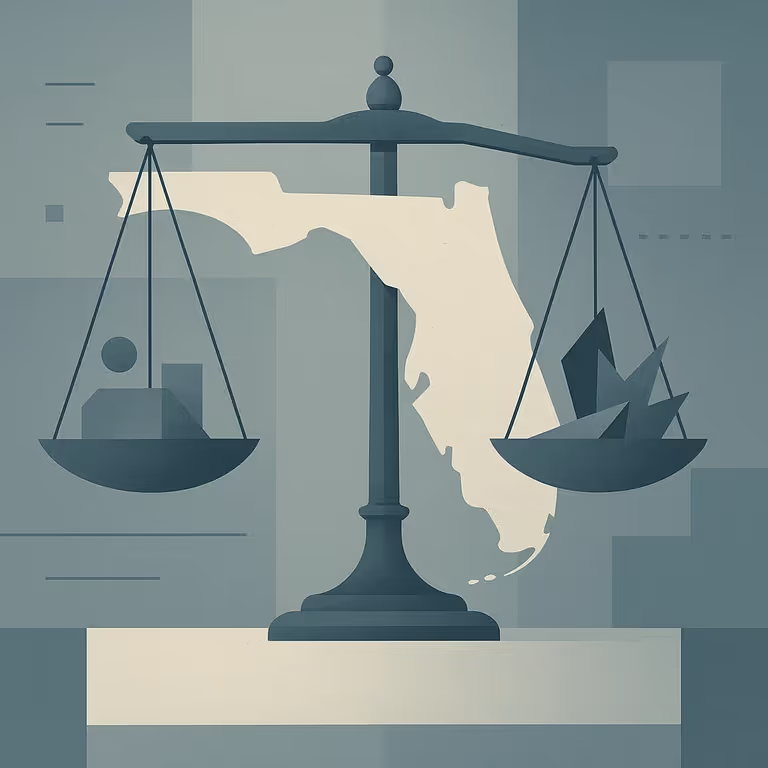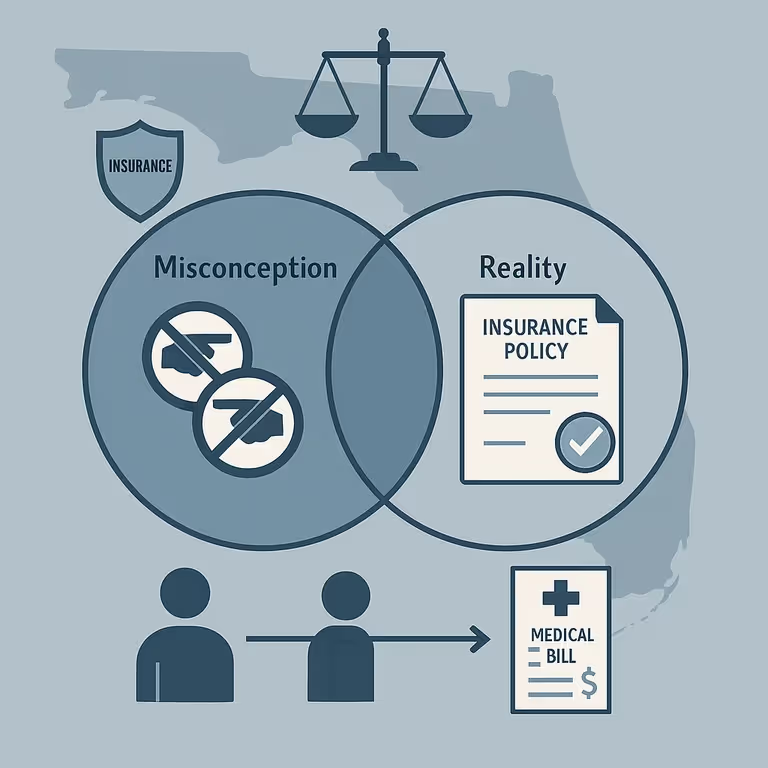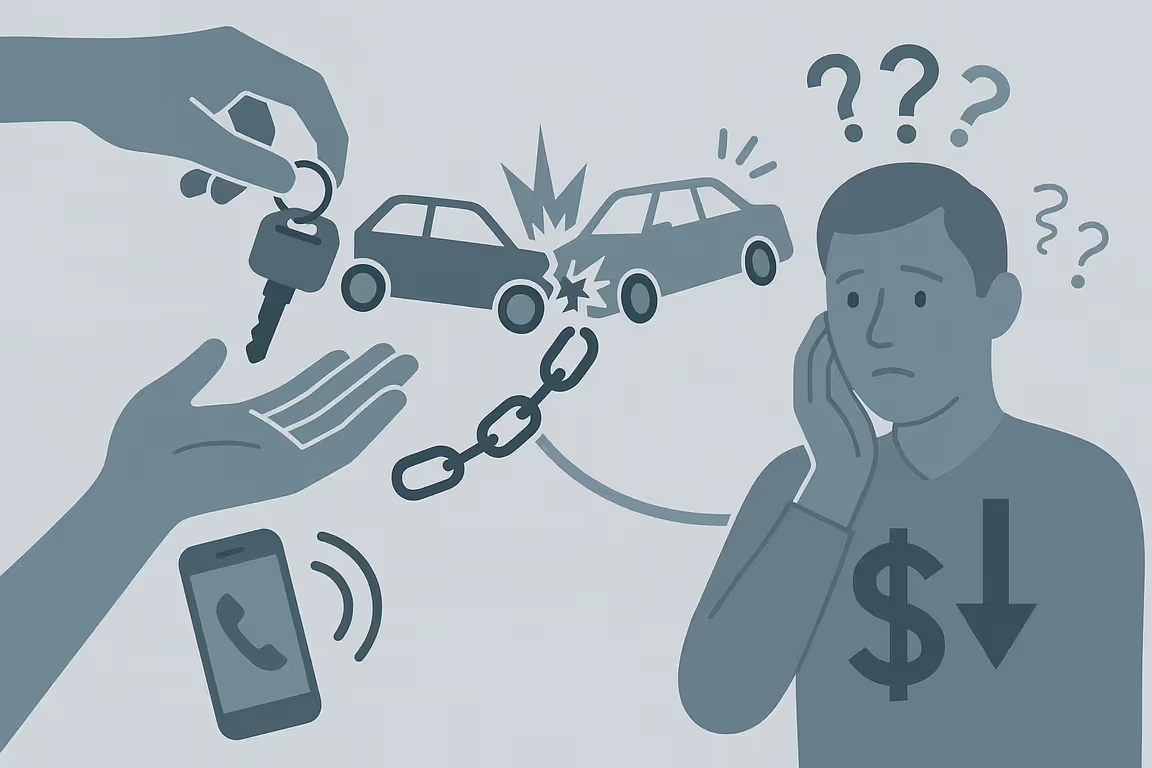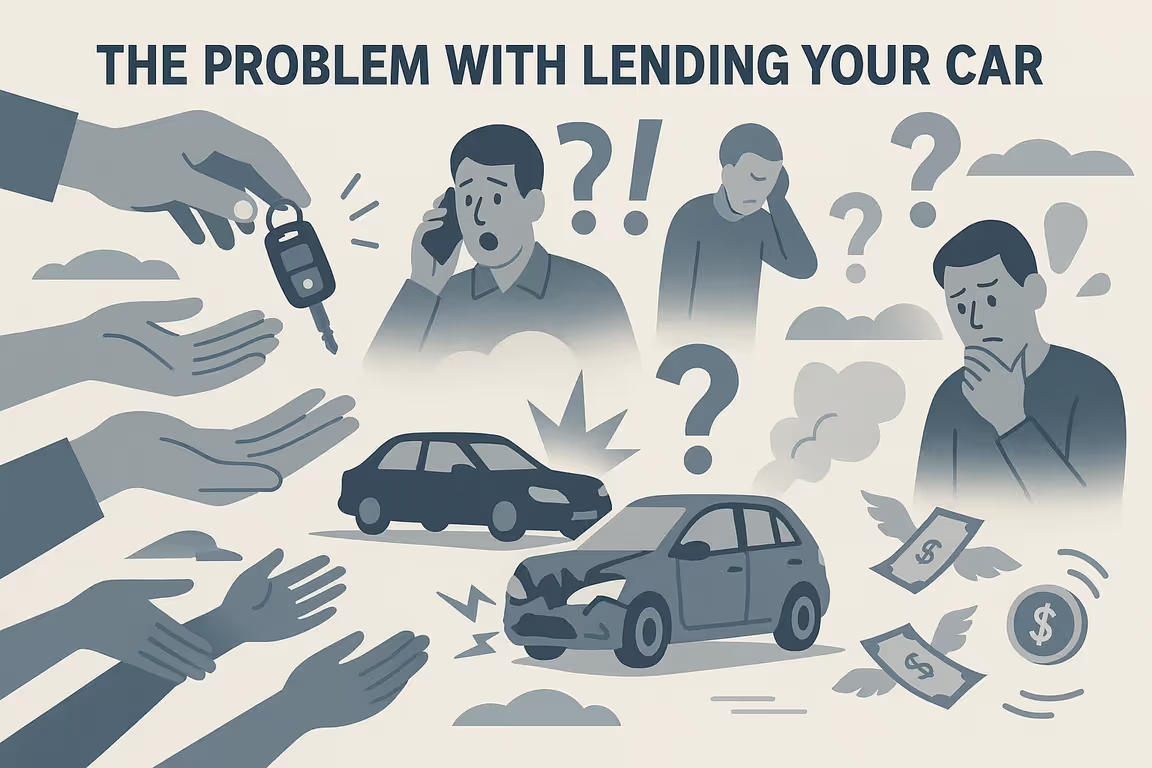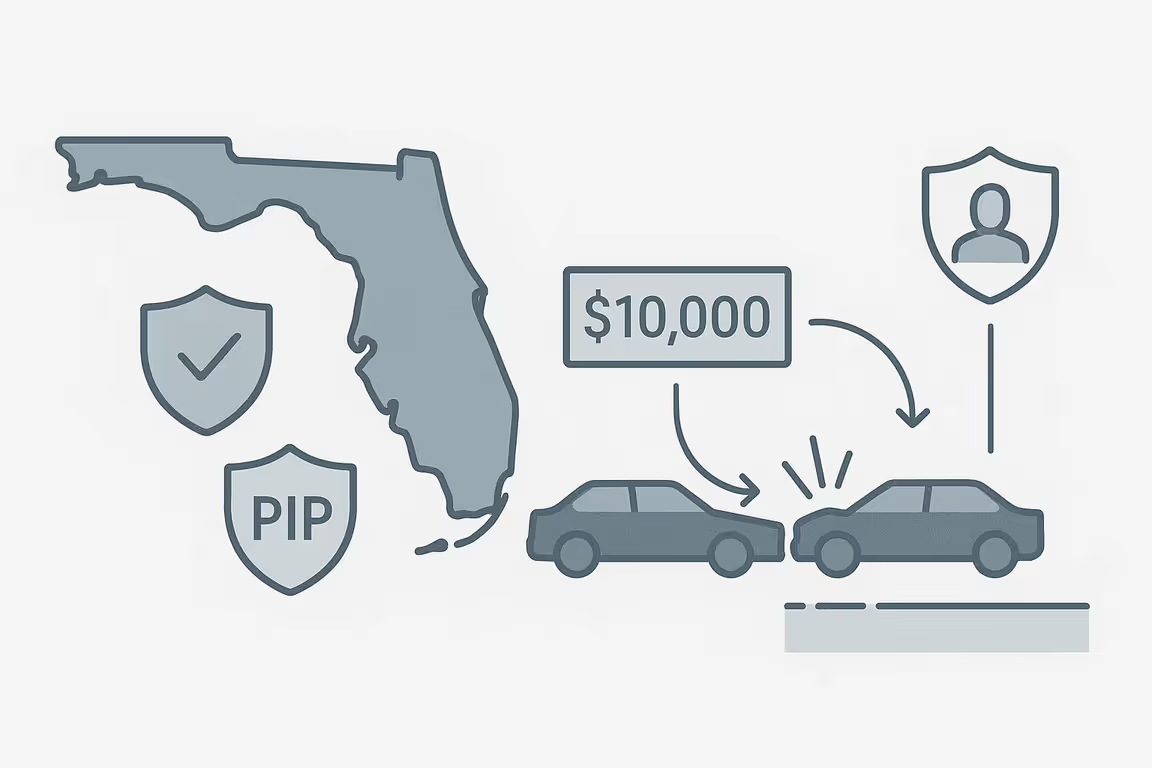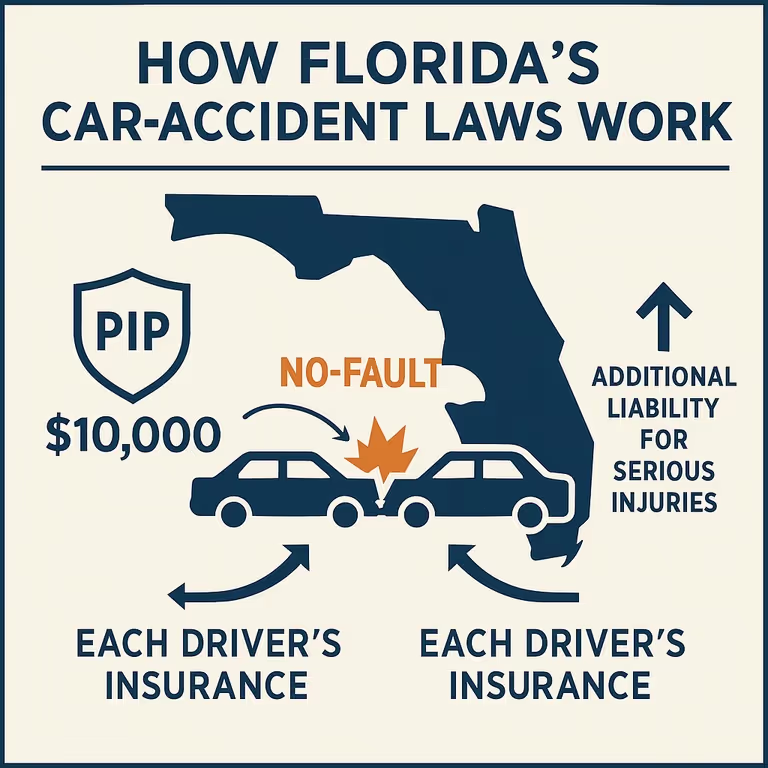What Should I Do After a Car Accident?
Learn crucial steps to take after a car accident from The Law Offices of Douglas R. Beam, P.A. Ensure your safety, document everything, and understand how to deal with insurance companies. Expert legal guidance for accident victims.

Worried About Your Injury Case? We'll Review It - Free!


Car accidents can be devastating. Every year many people lose time, energy, money, and even their lives due to a car accident. If an accident happens to you, it is important to know the steps to take after that can help protect you and your family from further harm. These important actions will help make sure you receive the kind of assistance you are entitled to – especially from your insurance company.
Your insurance company is legally bound to provide you with the right kind of compensation based on your injury, accident, and policy agreed upon. Many people deal with their insurance companies in the wrong way because they are unclear on how to proceed; this results in people not getting the kind of compensation they are owed.
With this in mind, here are the most important steps to take after a car accident – beginning with the first thing you should do:
First Things First
There are three things you should do before dealing with your insurance company, or even worrying about vehicle damage:
Safety first
In the immediate moments after an accident, you might find yourself confused about where you are and what is happening. If you are still conscious and aware, it is most important to focus on your safety and the safety of the people around you before anything else. You should also not assume that you are unhurt. Quite often, victims of car accidents, are in shock and do not realize they are hurt during these initial moments. Do not assume you are unhurt just because you feel OK at the time.
Here are some safety tips that you can follow in the initial moments of an accident:
1. Never try to move car accident victims. The only exception to this is if there is a fire or a burning smell in the vehicle that could cause further bodily harm. Most of the time, however, moving the victim can cause further harm to injuries they might have sustained during the crash. Victims might have internal injuries or broken bones that need to be handled by first-aid responders knowledgeable in car accident protocol.
2. Do not ignore your injury. Many types of injuries sustained in car accidents are not realized until days or even weeks after the accident. Traumatic brain and head injuries can occur without any kind of physical manifestation; and, quite often the days following an accident will reveal whiplash and back/neck pain. Trying to act tough in the face of a crisis will help no one.
3. Do a headcount. Make sure everyone who was in the vehicle prior to the collision is accounted for. Sometimes people in accidents are flung from the car by force or they might try to walk away from the accident if they are disoriented. It is important to know who is missing so that the first responders can act with swiftness to find and treat missing individuals.
4. Recall everything. To check the possibility of a concussion, you should try to recall important information. What were you doing before the accident happened? What do you recall before there was a collision? Make sure you are able to recall basic information about yourself and your loved ones. This can not only help identify a potential concussion but will also help the responding officers make identifications.
5. Do not try to be the hero. In this case, it is not your job. Even if it is your first instinct, do not try to save everyone. In most instances, by staying where you are and being as calm and rational as you can, you and your loved ones will be the safest. The first-responders will do their best to make sure everyone is taken care of.
Call 911
After you have ascertained consciousness in an accident, you should always call 911 if there is a cell phone nearby. Even if the accident is small, and all parties seem to be fine, it is smart to call 911 before checking on potential damage to the vehicles.
Never jump to the conclusion that a small accident such as a fender-bender has not caused bodily harm. As we have previously discussed, some injuries have latent side effects that may present themselves weeks down the road. It is important to call 911 even in instances of minor collisions.
Get immediate medical treatment
Always get immediate medical treatment. Being treated by a medical professional early will benefit you in several ways. By treating obvious injuries early, you have a higher patient outcome rate. Medical professionals will also be more likely to discover injuries you were not aware of at the time that need to be treated. And finally, you will have legitimate documentation of the injuries sustained at the time of the car accident.
Sometimes there are others in either vehicle that will take priority due to the severity of the injury sustained. In this instance, it is the job of the first-responder to determine the order of care for the victims in the accident.
As we have made clear, safety should be the priority of everyone involved in a car accident, especially in the moments right after the collision. Always get medical treatment and do your best to follow the steps we have discussed.
Medical Treatment and Insurance
As we have stated before, receiving medical care right after an accident will benefit you for insurance purposes. Some insurance companies will fault you for waiting to receive care and assume that you are uninjured because you did not need immediate care. Even if you feel O.K. to refuse care, getting checked out will provide documentation for your insurance agency.
The days following an accident may be traumatic and confusing. Many people suffer from acute PTSD and need adequate rest before jumping into insurance proceedings. We recommend contacting the insurance agency as soon as you can in the days following an accident if at all possible. Obviously, in instances of severe medical treatment, this might be impossible; in this case, the medical documentation will provide substantial evidence for any insurance compensation you might be owed.
If your injuries are not severe and you abstain from seeking medical help soon after, your insurance company could treat the gap of time as an admission of health. There is always the potential that the insurance company could claim that your pain is unrelated to the injury sustained in the accident.
Insurance companies generally assume that if hurt, a person will seek medical care. They argue that people may take advantage of the insurance company by receiving compensation for an ailment that was not actually caused by the accident. For this reason, insurance companies are generally very careful about checking documentation.
Document everything
It is very important that you document everything throughout the process. Taking photos is a great way to keep evidence of both your injuries and the damages to your vehicle throughout the process.
Document all of your medical bills, including visits you have with the doctor concerning your accident. We recommend getting yourself checked by doctors that are accredited by the insurance company if possible, in turn streamlining the process of settling your claim. By keeping a file pertaining to the accident you can present the insurance company with the proper documentation to settle quickly and easily.
By keeping detailed documentation of the accident and your injuries sustained, you will have evidence to prove that you are entitled compensation you are owed. Keep your police report, photographs, and medical records in the file, and if you are indeed owed compensation for injuries sustained, the record should give the insurance company reason to settle your claim properly.
Be careful when you talk and who you talk to.
Remember that insurance agents are not always on your side. They are first and foremost under obligation to the company to prevent payment when none is owed. If there are inconsistencies in your documentation your claim could be denied.
The insurance adjuster or any person working for the company has the difficult job of both disbursing funds for claims and maximizing the profit of the insurance company. Part of this job includes checking and double-checking whether or not you are indeed entitled to the claim filed.
Do not downplay your injuries. We recommend this because your health should be
Do not accept settlement immediately
We recommend waiting before accepting a settlement. Often, you may be entitled to compensation that is more than the initial settlement offered by the insurance company. Follow the right process and provide all documentation before jumping for the first offer.
Contact a lawyer first, always.
Always contact a lawyer when filing an insurance claim after a car accident. This is the best way to safeguard your rights to compensation and make sure they are not being denied. Your lawyer will make sure that you have what you need legally and can advocate for you if the insurance company initially denies your claim. A lawyer can also guide you when you have questions about how to go about dealing with the insurance agents.
Be Prepared For Anything
Always be prepared for anything after an accident. As we have discussed, it is most important that you follow the safety first steps upon collision and call 911. Allow first responders to ascertain your health and safety of you and those with you.
Organize all of your documentation in a file with photographs and medical records to provide for your insurance company. It is your responsibility to make sure you have evidence to show you deserve compensation for your injuries.
After first-responders have cleared the scene and medical care has been received, the most important tip we can give you is that you should always contact your lawyer upon filing a claim. Your lawyer can answer any legal questions you may have and guide you through the process of dealing with the insurance agency, providing you with the best chance at receiving what you deserve.




Not Sure What To Do Next? We Can Help – Fast & Free.
Worried About Your Injury Case?
We'll Review It - Free
Don’t miss an article
Florida law, local insights, and the occasional dog pic.
Delivered straight to your inbox.
More articles
Browse all articlesFree Case Review
Get a complimentary review of your case

.webp)
